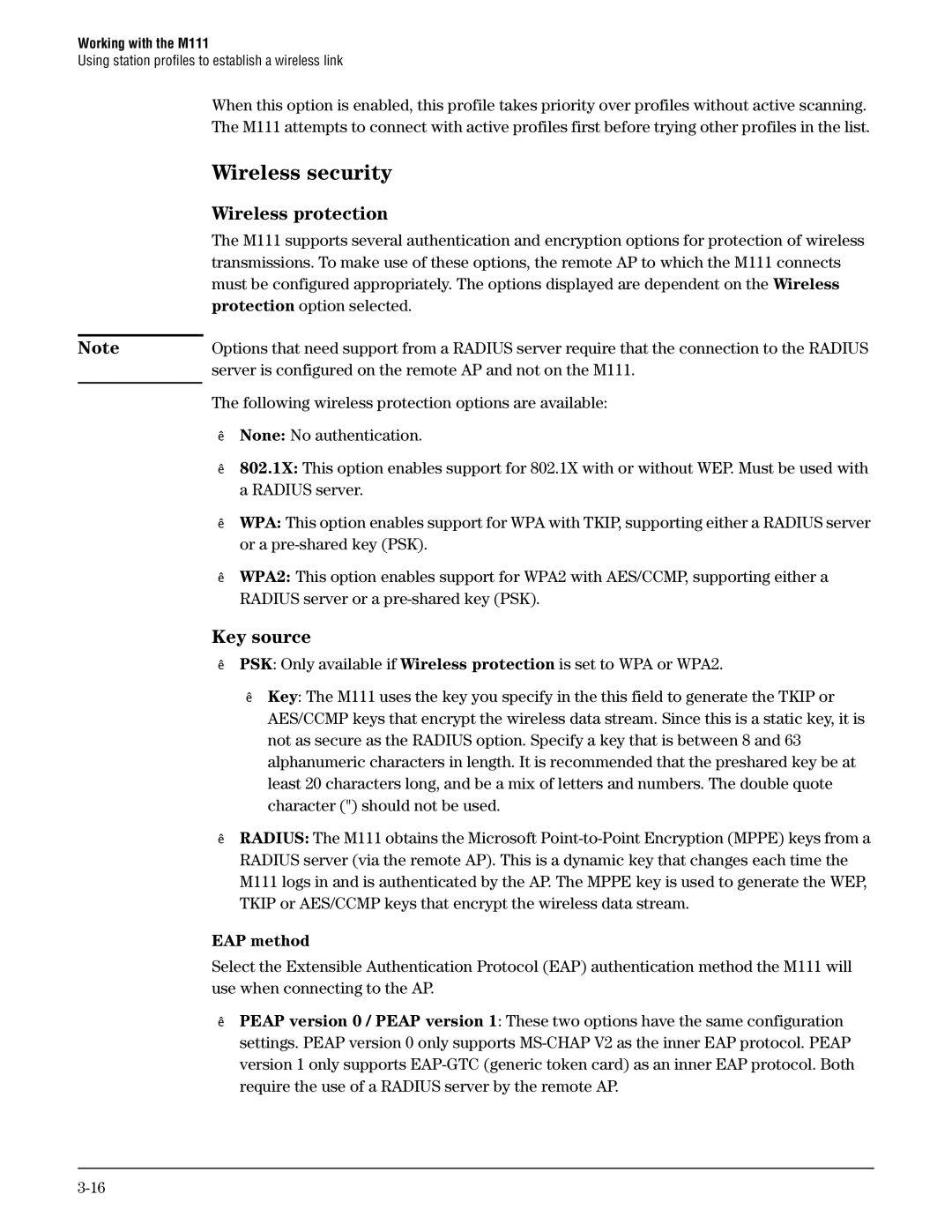Working with the M111
Using station profiles to establish a wireless link
When this option is enabled, this profile takes priority over profiles without active scanning. The M111 attempts to connect with active profiles first before trying other profiles in the list.
| Wireless security |
| Wireless protection |
| The M111 supports several authentication and encryption options for protection of wireless |
| transmissions. To make use of these options, the remote AP to which the M111 connects |
| must be configured appropriately. The options displayed are dependent on the Wireless |
| protection option selected. |
|
|
Note | Options that need support from a RADIUS server require that the connection to the RADIUS |
| server is configured on the remote AP and not on the M111. |
| The following wireless protection options are available: |
|
None: No authentication.
802.1X: This option enables support for 802.1X with or without WEP. Must be used with a RADIUS server.
WPA: This option enables support for WPA with TKIP, supporting either a RADIUS server or a
WPA2: This option enables support for WPA2 with AES/CCMP, supporting either a RADIUS server or a
Key source
PSK: Only available if Wireless protection is set to WPA or WPA2.
Key: The M111 uses the key you specify in the this field to generate the TKIP or AES/CCMP keys that encrypt the wireless data stream. Since this is a static key, it is not as secure as the RADIUS option. Specify a key that is between 8 and 63 alphanumeric characters in length. It is recommended that the preshared key be at least 20 characters long, and be a mix of letters and numbers. The double quote character (") should not be used.
RADIUS: The M111 obtains the Microsoft
EAP method
Select the Extensible Authentication Protocol (EAP) authentication method the M111 will use when connecting to the AP.
PEAP version 0 / PEAP version 1: These two options have the same configuration settings. PEAP version 0 only supports
